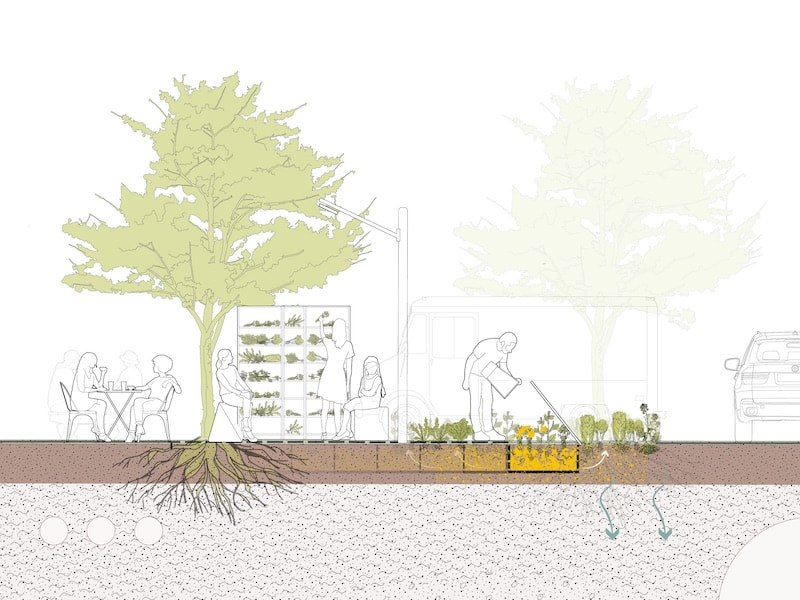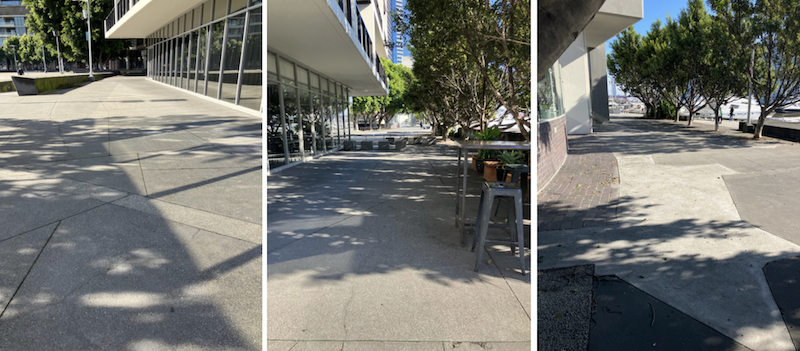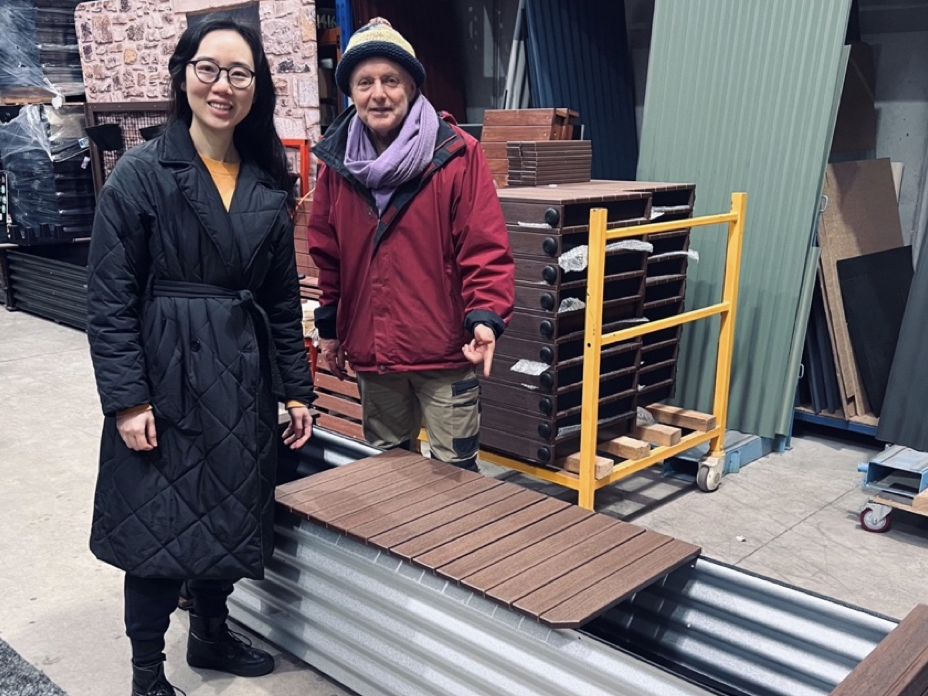|
On Thursday 15 August composting will walk onto the stage at Fishermans Bend, Melbourne. Zoe Wang and Michael Mobbs will pitch Upsoil, shortlisted in the Fishermans Bend Digital Innovation Challenge, an all-in-one mix of data displays tracking local food waste composting; a seat to relax on above the compost; and a garden bed with productive food plants in the middle of the city. Our project aims to bring fashion, style and simplicity to composting. It seeks to make composting convenient and attractive to anyone. Building a strong sense of community, especially at pedestrian and ground level in newly built precincts like Fishermans Bend with even more intensive development ahead, this is a perfect location for Upsoil Collective to make an impact. Tables, benches, garden beds and in-ground combinations allow many ways for residents, visitors, café and restaurant owners to sit in sun or shade, share a meal, harvest some herbs, fresh leafy greens or other plants and to turn food waste into soil and grow it back into food. The Digital Innovation Challenge by Melbourne City Council is intended to generate living data for the large Fishermans Bend development area, some 480 hectares of former industrial land along the Birrarung (Yarra River). Already, three finalists have each claimed $3,000 for their project costs. The finalists are listed here; the other contenders are a recycling materials stand, and a sound system to promote biodiversity. Further funding of $90,000 to bring the one winning idea to life is up for grabs.  Screenshot of the finalists page on the City of Melbourne website. This is where the public will be able to vote for the project they would like to win the Fishermans Bend Digital Innovation Challenge. Screenshot of the finalists page on the City of Melbourne website. This is where the public will be able to vote for the project they would like to win the Fishermans Bend Digital Innovation Challenge. On the night, five judges appointed by the council will consider the outcome, but votes from the public will also be critical to deciding the winner: half of the decision will be made by the jury, and the other half by public votes. That means YOU can vote for compost. Public voting opens on 15 August and will remain open for two weeks – from 7pm that Thursday night, simply click your preferred project on the City of Melbourne website finalists page. The Council will announce the winner after judging and public voting closes two weeks later. This moment reflects a growing awareness and desire in Australian communities for solutions to end all forms of waste. In Chippendale, with local business and resident support, the community has installed prototypes of Coolseats on the verge and footpaths for the last 5 years. The community composts 300 to 400 kgs of food a week in our footpath garden compost options. For Michael Mobbs, helping cafés and locals to compost these last few years in the footpath Coolseats, and surprising people sitting on them or waiting outside the café by letting them know what’s happening in plain view, tells the story of a design that is accepted and that works. Zoe Wang is an urban planning pioneer passionate about creating and humanising public domains to foster environments where a strong sense of community can prevail. She has been expanding and growing the use of Coolseats in her Upsoil Project development since she made it her major university project some years ago. Everything in the Coolseat is Australian made from recycled materials by Australian businesses – WaterUps, Mr Fox In A Box. The sturdy recycled steel sides of the garden bed come in 22 colours, the recycled bed ends, seats and tables come in several colours, and the wicking cells, out of sight below the plants, cut water use by 80 per cent. We are also collaborating with data providers, local compost legends such as Dave from Compost Care Naarm and the ever-growing Kensington Compost project.
If you would like to support worms, compost, and the humans sitting down taking it easy in beautiful food-producing streets, get online from Thursday 15 August and click on the Upsoil Project to cast your vote!
1 Comment
8/8/2024 07:48:36 am
Thank you Melbourne City Council for your vision and professional support to us and all three contestants during the challenge and preparation to present next week. And thank you and good luck to the other two finalists, the locals we've met at Fishermans Bend, and our colleagues, construction and operational partners. Most thanks, of course, to our lovely, generous and wonderful Earth - we're doing our best for you little blue dot. (And the worms, so many little critters that turn food waste into soil to grow more.) Michael
Reply
Leave a Reply. |
AboutWe are an interdisciplinary team working on cutting edge sustainability projects across Australia ArchivesCategories |



 RSS Feed
RSS Feed